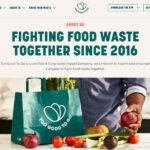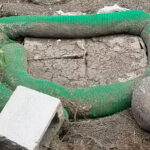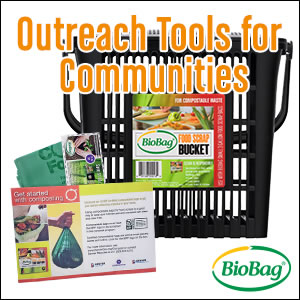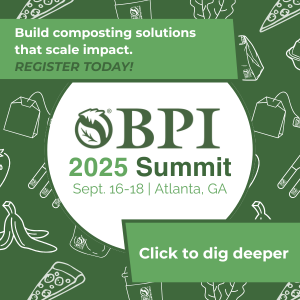Top: Pretreated food scraps that were dropped off at city collection sites are transported to the region’s composting facility. Photo courtesy City of Nelson, British Columbia
Following publication of “Pretreated Kitchen Scraps Vs. Traditional Curbside Collection” in the December 3, 2024 edition of BioCycle CONNECT, the editor received a letter from Carmen Proctor, the City of Nelson, British Columbia’s Climate & Energy Manager, asking to provide additional context and highlight some areas where the full story may not have been captured. The BioCycle article was based on excerpts from a report on the City of Nelson’s pilot project that examined whether use of household food scrap pretreatment appliances is an alternative approach to maximize organics diversion, versus a curbside collection program. The Letter to the Editor, is as follows:
Dear Editor,
The evaluation report made use of traditional metrics that are well-suited for assessing curbside organics collection but do not fully capture the unique nature of our program, in which organic waste is pretreated and either dropped off for collection or used in home gardens. While these metrics offer valuable insights, they do not account for the culture of self-hauling garbage to the transfer station, which is common in Nelson, and therefore offer an incomplete picture of the full waste profile. These metrics also may not fully reflect the program’s broader environmental and social impact … designed not only to divert food waste but also to support a key aspiration in the City’s climate action plan, Nelson Next. This plan outlines our commitment to reducing greenhouse gas emissions and promoting sustainability within our community. To date, we have distributed over 2,200 FoodCyclers [a kitchen appliance] to help Nelson households divert organic waste from the landfill.
We acknowledge the challenges in quantifying the impact of a unique, decentralized system like ours and are developing new methodologies to assess our program’s effectiveness more accurately. This includes:
- Refining waste composition analysis techniques to include the significant portion of the population that self-haul their waste.
- Implementing smart plugs to be used in conjunction with the FoodCyclers for real-time usage data.
- Conducting more frequent and comprehensive surveys of participants to better understand the usage of both the machine and the end product, as well as the impact of our education efforts and associated behavior changes.
The City of Nelson is also continually working to improve resident engagement and education. Since the report was finalized, we’ve committed to:
- Launching a more comprehensive education program to further engage residents and increase awareness of the available supports for food waste diversion in our community.
- Implementing a responsive approach to ensure our outreach and education efforts are shaped by the lessons learned from ongoing data collection.
- Continuing to invest in our program infrastructure by installing a third end-product collection site in our community. These sites, combined with other program supports including a local repair program and a carbon refill station, have made it easier for residents to engage in food waste diversion.
The City is committed to refining the Pre-treated Organics Program. By extending it into 2025, we have gained an opportunity for deeper data collection, expanded education, and enhanced community participation. As a forward-thinking community, Nelson remains dedicated to exploring this innovative solution to environmental challenges and committed to transparency and continuous improvement. We look forward to sharing more comprehensive data and insights that will provide a fuller picture of the program’s impact and potential. We welcome further discussion and are always open to collaborating with waste management experts to refine our approach and measurement techniques.
Sincerely,
Carmen Proctor, Climate & Energy Manager
City of Nelson













